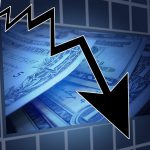Concerned about investment losses with your broker?
If you suspect your account has been excessively traded, your broker may be churning your account. But how can you be certain? According to the SEC, churning occurs when a broker engages in excessive buying and selling of securities in a customer’s account chiefly to generate commissions that benefit the broker. For churning to occur, the broker must exercise control over the investment decisions in the customer’s account, such as through a formal written discretionary agreement.
Frequent in-and-out purchases and sales of securities that don’t appear necessary to fulfill the customer’s investment goals may be evidence of churning.
The Looper Formula & Churning
The Looper Formula is a formalized method to determine whether an account has been excessively traded or churned. It is the turnover rate calculated by the dollar amount of purchases during a time period divided by the average account equity annualized. The 2-4-6 ‘rule of thumb’ turnover rate is often used to analyze trading:
- Twice a year is ‘suggestive’ of excessive trading
- Four times a year is ‘indicative’ of excessive trading
- Six times a year turnover is ‘conclusive’ of excessive trading (churning)
According to the SEC, “The turnover rate is computed by dividing the
aggregate amount of purchases in an account by either equity in the account (the equity formula) or by the average monthly investment (the Looper formula). The Looper formula represents the cumulative total of the net investment at the end of each month, exclusive of loans, divided by the number of months under consideration. See, Looper & Co., 38 S.E.C. 294, 297n.6 (1958).
When churning occurs, a FINRA arbitration claim against the financial advisor or the financial advisor’s employer is often the best way to recover the damages.
Proving a Churning Claim
In order to prove a Churning Claim you need to be able to prove the following:
- Did the client give the broker control of the account?
- Is the broker excessively trading the account?
- Is the broker excessively trading the account in order to gain commissions?
Free Consultation
Churning claims can be complex and sometimes difficult to prove. Brokerage firm almost always hire experience securities defense firms to defend them in these claims. If you believe that you are the victim of churning by your brokerage firm or financial advisor, it is recommended that you consult with an experienced securities attorney.
For a free consultation with a securities attorney, please call The White Law Group at 888-637-5510.
The White Law Group, LLC is a national securities fraud, securities arbitration, and investor protection law firm with offices in Chicago, Illinois and Vero Beach, Florida.
For more information on The White Law Group, visit https://whitesecuritieslaw.com.
Tags: broker churning, churning turnover ratio Last modified: March 14, 2024








